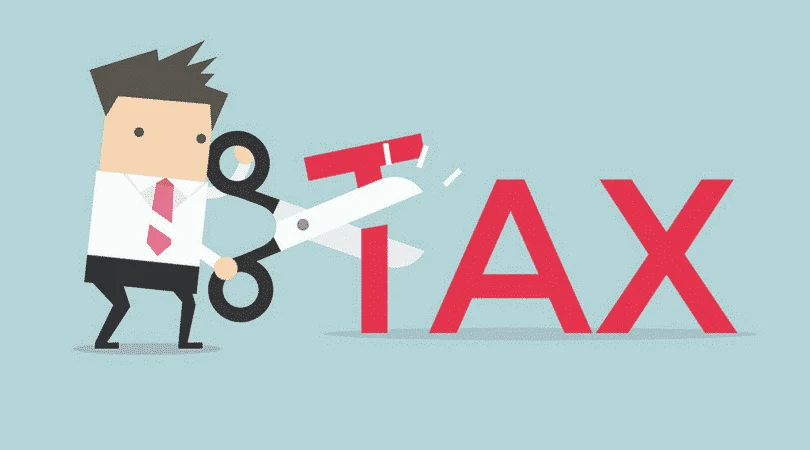If you are a dentist then there are both tax and non-tax reasons for considering the corporate form of a business organization. As a dental professional, you provide professional services and you are regulated by a governing professional body known as The Royal College of Dental Surgeons. This means that you will then need to know the advantages of Dentistry professional corporation.
Tax Advantages of Incorporating a Professional Corporation for a Dentist
Here are three potential significant tax benefits of incorporating a professional corporation for a DDS or oral surgeon:
- Issuing salary or dividends to family members in lower tax brackets;
- A tax deferral is possible by retaining earnings in the professional corporation;
- The $800,000 capital gains exemption available for sale of a small business can only be claimed on the sale of shares of a qualifying corporation and not for the sale of a sole dental proprietorship or a dentist partnership.
Tax Deferral by Dentist
Net income of a dental surgeon’s sole proprietorship or a partnership is taxed directly in the hands of the owner. However, a dentist’s professional corporation is a separate taxpayer with its own income tax rates.
A dentist’s corporation which is incorporated in Canada and is controlled by individuals governed by The Royal College of Dental Surgeons who are also Canadian residents will normally qualify as a “Canadian-controlled private corporation”. This status allows it to claim the small business deduction, a reduction of the normal corporate income tax rate on the first $500,000 of a corporation’s annual taxable income earned from carrying on an active business in Canada.
The tax advantage which the shareholders of such a dental corporation with active business income will enjoy is the ability to defer the payment of some income tax. A dentist’s corporation eligible for the small business deduction pays tax at about 11 – 16% on its first $500,000 of taxable income. The percentages of tax differ depending upon which province the corporation is resident in. The remaining tax, which is paid by the shareholders upon receipt of dividends from the corporation, is deferred until dividends are paid. When dividends are paid the balance of the tax is levied on the shareholder. The tax rate is dependent on whether the dividend is an eligible or ineligible dividend, with the range being between 19% and 40% depending on the province.
The deferral is significant, especially for a taxpayer in the top marginal tax bracket, and means that approximately twice the funds are available for investment, since in effect tax money is being retained in the corporation and invested.
Dentists are eligible for this tax deferral when incorporating. Please take note of the discussion found below as to who can be shareholders in a professional corporation.
Electing Dentistry Shareholders, Directors and Officers
In a regular corporation, you usually have the ability to elect anyone you like as a shareholder, director or officer. However, in a professional corporation this is restricted to the rules set out by the governing professional body, which would be The Royal College of Dental Surgeons.
For example, all of the issued and outstanding voting shares of a dentist’s professional corporation can only be legally and beneficially owned by a member of the same profession (dentistry) who are certified by The Royal College of Dental Surgeons. Your spouse or children may be shareholders of the professional corporation, but please keep in mind that they may only own non-voting shares. Also, please note that the Royal College of Dental Surgeons does not allow holding companies to control a dental professional corporation.
An important restriction to note is that all officers and directors of the dentist’s professional corporation must be shareholders of the corporation who are members of the Royal College of Dental Surgeons of Ontario.
It is important to check these rules prior to incorporating and designating anyone as a shareholder, officer or director of a dental professional corporation.
Investment Income
The Canadian tax system is designed, in certain instances, to be neutral between income earned personally or through a corporation. As a result, after the shareholder pays tax on his dividends, the total tax burden will be approximately the same amount he would have paid if the income was received directly.
This neutrality means that for non-active income of a dentist’s corporation such as investment income or capital gains, the professional corporation effectively pays tax at the same rate as an individual. Accordingly there is no material tax deferral possible on passive income.
Capital Gains Exemption
The other main tax benefit to incorporation of a dental practice is the ability to claim the $800,000 capital gains exemption on a sale of the professional dental practice. The complex rules provide, in effect, that to claim the exemption the shares must be of a Canadian-controlled private corporation, at least 90% of the assets of which are used in an active business carried on in Canada, or a holding company which owns such shares. Additionally, there are further rules stating the taxpayer must hold the shares for a period of two years prior to the sale.
Where the shares qualify, the owner can sell them and the first $800,000 of capital gains are exempt from tax. Note that the exemption applies to the individual and not the corporation. Once an owner has claimed $800,000 of capital gains exemption, the exemption is no longer available on a sale of other qualifying shares.
Limited Liability
Liability protection is generally the main non-tax reason to incorporate and is the main motivation for many incorporations to take place. While a sole proprietor or partner in a general partnership has unlimited liability to creditors of the business, shareholders of a corporation have no such risk. Without the protection of limited liability most entrepreneurs would not take the risks of going into business.
In a professional corporation, the liability is different. As a dental surgeon, you may be sued for malpractice. The Disadvantage Of Professional Corporation Is That It Does Not Provide The Same Protection As A Regular Corporation. It actually provides no additional limitation on liability in this case. That is why it is extremely important to always keep your malpractice insurance up to date.
A professional corporation does provide some protection from creditors if you borrow money. Perhaps you have taken out a loan to finance a new office or to purchase some new equipment. A professional corporation will shield you from personal liability if you are unable to repay those loans.
Director’s Liability
While shareholders have limited liability, directors of a corporation are subject to various liabilities. These include liabilities for unremitted source deductions, unremitted P.S.T and G.S.T/H.S.T. and certain environmental liabilities.
Furthermore, passive directors who may not be involved in running the business may still be subject to certain of these liabilities. Passive directors should be aware of what the corporation is doing and should ensure that director’s liability insurance is in place to protect them.
As a dentist, you will no doubt have employees working with you. They could be your receptionist, oral hygienist, assistant or anyone else employed in your office. It is up to you to ensure that the above is taken care of, or else the Canada Revenue Agency can assess you personally.
Private Pension Plan
Another advantage of incorporating a professional corporation is the ability to set up an Individual Pension Plan for the business owner/shareholders who are also employees of a professional corporation. It is important to begin planning for retirement early in your career by contributing to a private pension plan. A private pension plan can be registered or unregistered with the Ministry of Revenue. An employer’s contribution to the registered pension plan is not a taxable benefit for the employee whereas it is a taxable benefit if employer contributes to an unregistered pension plan for employee.
An Individual Pension Plan has many advantages over an RRSP, and it can be set up for high income earning incorporated professionals to obtain more immediate tax deductibility advantages than compared with an RRSP. An Individual Pension Plan is a registered and defined benefit pension plan. Private Pension Plans have to be created by a corporate employer with the main purpose of “providing periodic payments to individuals after retirement and until death in respect of their service as employees.” Contributions to the Individual Pension Plan are tax-deductible for employer and if the corporate employer borrowed money to sponsor the contributions for the Individual Pension Plan, the interest can be deducted as well. Because it is a defined contribution plan, it generally will allow the contribution room to increase as a person ages.
If you are an owner of a professional corporation, as an employer you will generally need to consult with an actuarial or an accountant to determine the necessary and optimal contribution for employees for a given year. An employer’s contribution to the employee’s Individual Pension Plan is not a taxable benefit for the employee. The cost of establishing and administering an Individual Pension Plan for employees is deductible for the corporate employer as an expense.
Contact Abdullah CPA for Incorporation and Tax Planning






